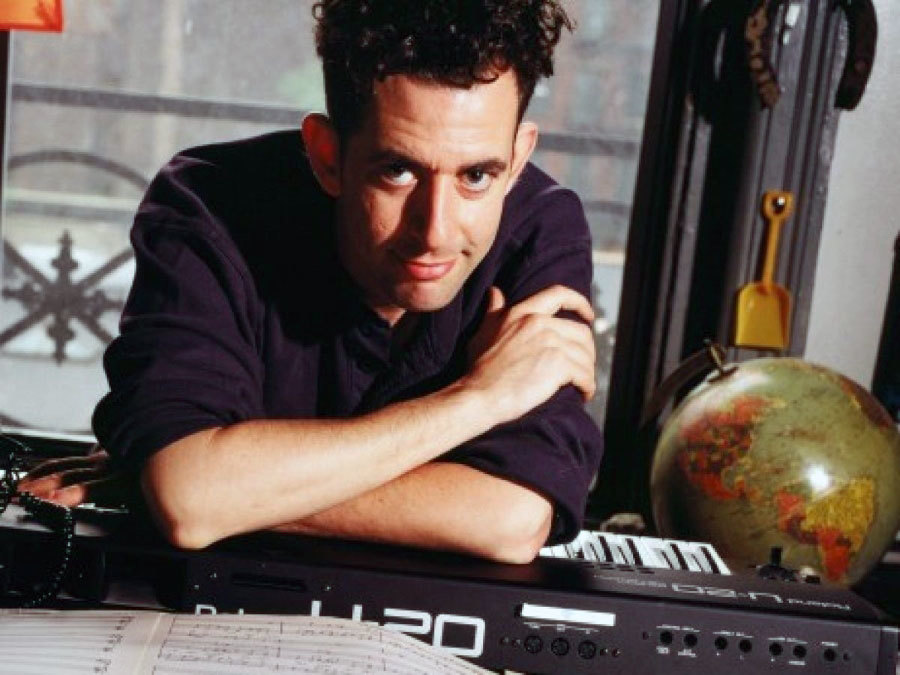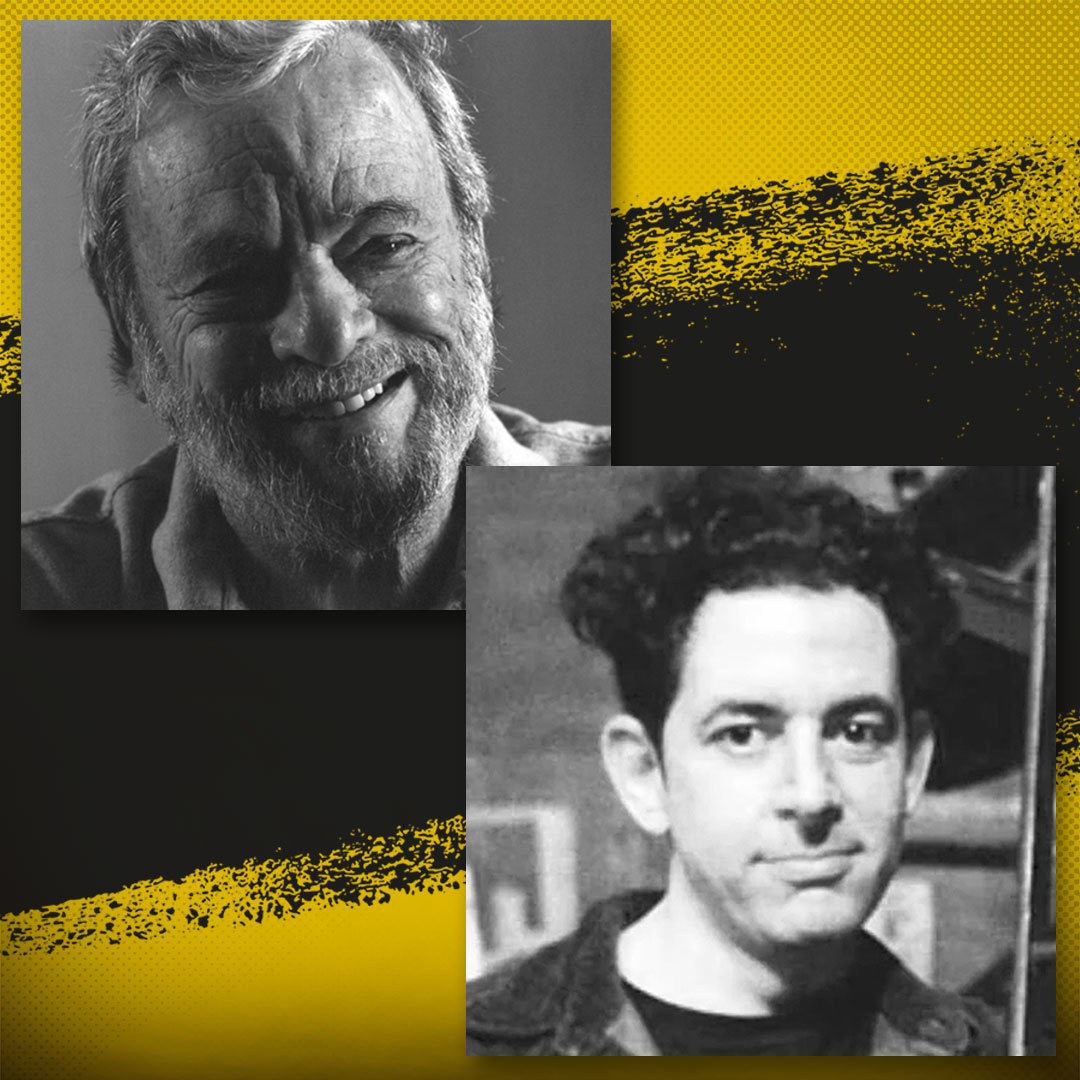Jonathan Larson: Life & Work
Childhood, Education, and Early Career
Born February 4, 1960, in White Plains, NY, to Nanette and Allan Larson, Jonathan Larson was an
artistic prodigy from an early age. His father once said, “I was changing his diaper, so he had to
be pretty young, and he started singing ‘Yellow Bird’ in tune.” He and his older sister, Julie, spent
much of their adolescence in drama clubs, music lessons, and attending cultural events. Jonathan
played many instruments including piano/keyboard, trumpet, and tuba.
In 1978, Jonathan received a full scholarship to Adelphi University in Garden City, NY, where he pursued an acting major. While there, he acted but began to focus on his composing and writing career, creating several cabarets and musicals. It was while he was at Adelphi that he began a friendship with Stephen Sondheim, who would support him for many years. Sondheim, recognizing his talent, told him “there were a lot more starving actors out there than starving composers” and encouraged him to join the American Society of Composers, Authors, and Publishers (ASCAP). Sondheim also corresponded with Jonathan for many years and wrote him several letters of recommendation.
When Jonathan graduated with his B.F.A. in acting in 1982, he went on to work in summer stock as both an actor and musician and earned his Actors' Equity card from The Barn Theater in Augusta, Michigan. He then moved to New York City, in a small apartment on the West Side with no heat. He began waiting tables at the Moondance Diner, a famous staple of SoHo. There, he met Jesse L. Martin, who would eventually play Collins in the original cast of Rent. His group of friends was made up of young artists and creators, including Roger Bart, Marin Mazzie, and Scott Burkell. His apartment became the center of the groups' lives and, like in Rent, Jonathan let guests up to his place by throwing his key to them from his window. He would host what they called “The Peasants’ Feast” where guests would cook, sing, and kiki together into the night — listening to Jonathan as he boasted that he would “change the face of American theater.” He had a deep belief in himself and the work he was doing. Left in his personal papers was the following note, which reads:
“I am striving to become a writer and composer of musicals — I am 25 and am faced with a dilemma. Although I am a sentimental romantic who loves old fashioned musicals I am a member of a very unsentimental unromantic generation, who generally basically think musicals are too corny. I feel that if I want to establish myself with “the powers that be” in the theatre I must compose music that appeals to the older ears in the production company houses & audiences. But if I want to try to cultivate a new audience for musicals I must write shows with a score that MTV ears will accept. If you were me, which audience would you write for?”
Larson's Works
In 1983, Jonathan began work on a musical called Superbia. The original idea was to adapt George Orwell’s 1984, but the late writer’s estate denied him permission. In response, Jonathan took what he’d already written and repurposed it into a futuristic musical set in 2064. Superbia won the Richard Rodgers Production Award and the Richard Rodgers Development Grant. However, despite performances at Playwrights Horizons and a rock concert version at the Village Gate in September 1989 (which was produced by Larson's close friend and producer, Victoria Leacock), Superbia never received a full production. Producers called it, “too expensive for Off-Broadway and too weird for Broadway.” a fact that his sister said devastated him.
He followed up Superbia in 1991 with an autobiographical musical called tick, tick ... BOOM!, which fictionalized his own journey trying to get Superbia produced. He created the show to be smaller and “more producible,” with just three actors including himself. He was urged to cast another actor in the role of Jon so that he could focus on his book, but he refused. Tick became more successful than Superbia, with several developmental productions. After tick, tick ... BOOM! ran at Second Stage Theater, an aspiring producer, Jeffrey Seller, saw the show and wrote Jonathan a letter:
“Your work — music, lyrics, and spoken word — has an emotional power and resonance that I have rarely experienced in the theatre. You’re also insightful, perceptive, and very funny,” said Seller. He added, “Like you, I want to do great things in the theatre.” Seller would go on to produce shows like Avenue Q and Hamilton and was instrumental in bringing Rent to the world.
As Larson was writing Tick, he learned that his childhood best friend, Matt O’Grady, and some of their other friends had contracted HIV. He began to fold his feeling of impermanence into the play. Unfortunately, all of those friends, except Matt, would eventually pass away from AIDS. Another friend, Victoria Lealock, said, “We had gone from a crisis to a plague ... and it was evident to Jonathan that the palette of ‘Tick’ just wasn’t big enough to deal with the nightmare we were living through.”
Rent
Larson then set out to dig into another abandoned project — an adaptation of La Boheme by Puccini. A former collaborator had amicably walked away from the script and Jonathan began writing alone in earnest. In 1993, Rent had its first staged reading at the New York Theater Workshop. He continued working on Rent until January 24, 1996, when the cast had their final dress run of the show and prepared to do their first public performance the next evening. That night, Jonathan left the theater and went home. He had been feeling ill for days and had even passed out during tech earlier in the week. Several doctor visits later, he was sent home with a diagnosis of food poisoning. That night, Jonathan died just 10 days shy of his 36th birthday of an aortic dissection as the result of undiagnosed Marfan syndrome.
The cast decided to perform the play as a reading for a few of Jonathan’s family and friends that evening, just as a table read, but as they began to sing “La Vie Boheme” several actors began to do the full choreography. At intermission, everyone decided to get into full costume and perform the rest of the show as rehearsed. In the end, they were met by several moments of silence in the theater and then, from the back of the house, someone called out “Thank you, Jonathan Larson.” Larson’s mother describes the moment by saying, “It was like a spell had broken.”
The show ran at NYTW until April when it transferred to the Nederlander Theater and ran there for 12 years. The original Broadway cast included all of the NYTW cast members: Taye Diggs, Wilson Jermaine Heredia, Jesse L. Martin, Idina Menzel, Adam Pascal, Anthony Rapp, Daphne Rubin-Vega, and Fredi Walker.
For his work on Rent, Larson was posthumously awarded the Pulitzer Prize for Drama; the Tony Award for Best Musical, the Tony Award for Best Book of a Musical, and the Tony Award for Best Original Score; the Drama Desk Award for Outstanding Book of a Musical, the Drama Desk Award for Outstanding Music, and the Drama Desk Award for Outstanding Lyrics; the New York Drama Critics Circle Award for Best Musical; the Outer Critics Circle Award for Best Musical in the Off-Broadway category; and Obie Awards for Outstanding Book, Outstanding Lyrics, and Outstanding Music.
Portland Center Stage is committed to identifying & interrupting instances of racism & all forms of oppression, through the principles of inclusion, diversity, equity, & accessibility (IDEA).

















